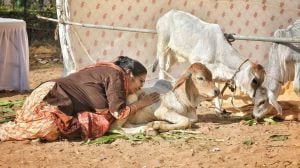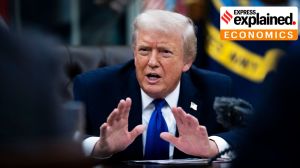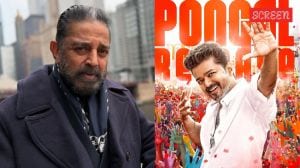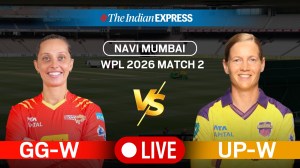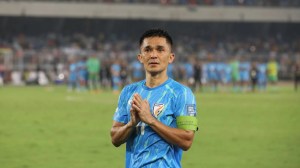Tweedledum or Tweedledee?
As the nation is in the midst of another crucial test of the vibrancy of its democracy, our politicians are desperately seeking to project a...

As the nation is in the midst of another crucial test of the vibrancy of its democracy, our politicians are desperately seeking to project a positive image of themselves among voters who have grown cynical about both their promises and performance.
The short and turbulent history of the 12th Lok Sabha and the record of the 13th Lok Sabha have not helped enhance their prestige since they are remembered more for creating chaos and breaking rules than for making laws.
The confusion among the electorate is worse confounded by the plethora of parties, by the swift entries and exits, the ayarams and gayarams, all in the name of flexibility. Fickleness has come to be accepted as the sine qua non of politics. A long time US Congressman, Morris K. Udal, once wrote: 8220;If you are looking for world class examples of fickleness, politicians are the ones to study.8221;
Our own politicians may like to draw inspiration from the late US senator, Everett Dickson, who had boasted: 8220;I am a man of principle. And the first principle is flexibility.8221; Perhaps no nation in the world has as many parties in the fray as India. A frustrated Charles de Gaulle was once reported to have thrown up his hands and said: 8220;How can anyone govern a nation that has 246 different kinds of cheese?8221; India may not have the number of cheeses France enjoys but it has more than double the number of parties. According to the former CEC, T.N. Seshan, there are at least 700 political parties registered with the Election Commission. Tamil Nadu probably holds the record for the highest number in a state. All India Anna DMK headed by Jayalalithaa is essentially a regional party, confined to the state, with a small presence in Karnataka, but the name suggests it is a national party. Yet, ultimately, the voters8217; choice is indeed difficult. They are forced to choose between Tweedledum and Tweedledee.
As the electoral battle gets into top gear, the famous words of Britain8217;s war-time prime minister, Winston Churchill, come to my mind. 8220;On the night of the tenth May 1940, at the outset of this mighty battle,8221; he said, 8220;I acquired the chief power in the State, which henceforth I wielded in ever growing measure for five years and three months of world war, at the end of which time, all our enemies having surrendered unconditionally or being about to do so, I was immediately dismissed by the British electorate from all conduct of their affairs.8221;
Come May 13, Prime Minister Vajpayee, whose government boasts of having created a 8220;shining8221; India, will await the verdict of the nation. If you believe the opinion polls, Vajpayee may not meet Churchill8217;s fate, but as the Americans say: 8220;It is not over until it is over.8221; Opinion polls have come to stay, notwithstanding the 8220;old song8221; of candidates who are written off by pollsters: The only poll that counts is the one on election day.
- 01
- 02
- 03
- 04
- 05








